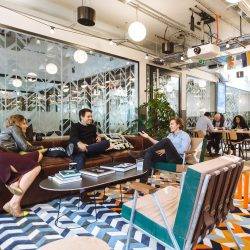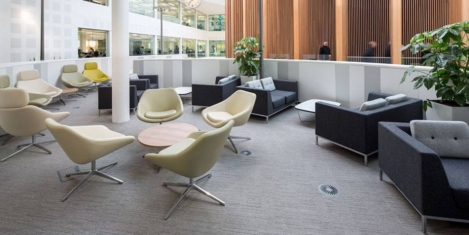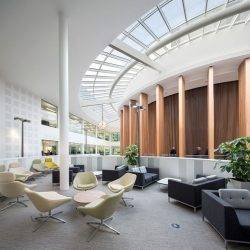November 21, 2016
Staples reveals winners of Tomorrow’s Workplace design competition 0
 According to the winning entries of the Tomorrow’s Workplace design competition from Staples Business Advantage and Metropolis magazine, in 2021 the workplace may include inflatable pods set up in urban parks, or young professionals working alongside active retirees in a setting that resembles a small town more than an office building. The contest was hosted by Staples Business Advantage, the business-to-business division of Staples, and architecture magazine Metropolis. “The massive corporate office tower, usually a glass box with central air pumped in, is turning into the dinosaur from the 20th century,” said Susan S. Szenasy, publisher and editor in chief, Metropolis. “Workplaces will become more multi-generational and multi-functional, fostering communities in the process. With the many changes in how and where we work, one thing is sure—today’s office is not your father’s or mother’s office.”
According to the winning entries of the Tomorrow’s Workplace design competition from Staples Business Advantage and Metropolis magazine, in 2021 the workplace may include inflatable pods set up in urban parks, or young professionals working alongside active retirees in a setting that resembles a small town more than an office building. The contest was hosted by Staples Business Advantage, the business-to-business division of Staples, and architecture magazine Metropolis. “The massive corporate office tower, usually a glass box with central air pumped in, is turning into the dinosaur from the 20th century,” said Susan S. Szenasy, publisher and editor in chief, Metropolis. “Workplaces will become more multi-generational and multi-functional, fostering communities in the process. With the many changes in how and where we work, one thing is sure—today’s office is not your father’s or mother’s office.”
































October 7, 2016
Are we seeing the workification of home or the homification of work? 0
by Anna King • Comment, Flexible working, Workplace design
(more…)